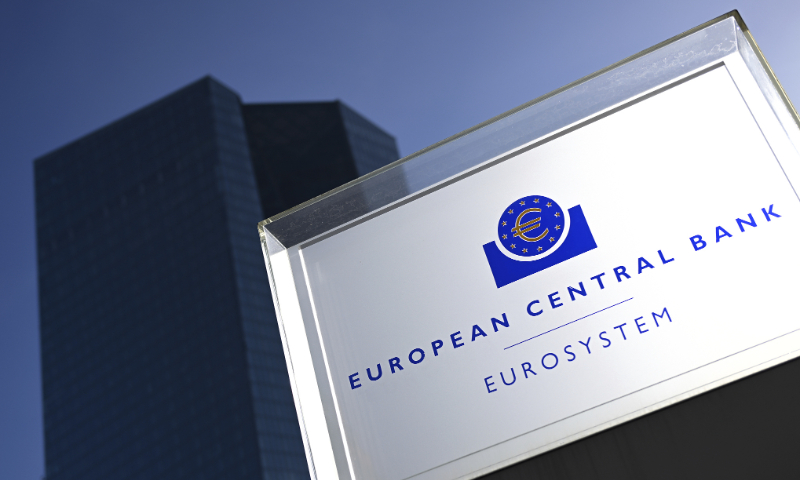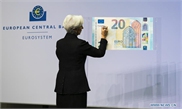
Photo: VCG
The European Central Bank (ECB) is widely expected to further hike interest rates to tame persistently high inflation, and many are watching closely amid mixed signals on Thursday.
Coming as the US continues an aggressive round of rate hikes, the ECB's decision could also have huge implications for global asset prices, Chinese experts said, stressing that while China will also face some external risks, the country is well positioned to cope with them.
In the latest signal, ECB policymaker Mario Centeno told Reuters that the ECB should slow the pace of interest rate hikes from December and send a clear message that 75-basis-point increases are not the norm, as inflation is likely to peak this quarter.
"We are nearing rate levels that we consider compatible with price stability in the medium term, which means that the idea that 75-basis-point hikes are the norm cannot [materialize]," Centeno said.
A separate Reuters report, citing a poll, predicted that the ECB was expected to increase its deposit rate by another 50 basis points (bps) on December 15.
The ECB has raised interest rates by a record 75 bps at each of its last two meetings and since July it has lifted its deposit rate by a combined 200 bps to 1.5 percent from historic lows.
On October 27, the Governing Council of the ECB decided to raise the three key interest rates by 75 bps.
The proposal to raise the key ECB interest rates by 75 bps was supported by a large majority of members, according to the account of the monetary policy meeting of the Governing Council of the ECB held in Frankfurt am Main on October 26 and October 27, the ECB released on Thursday.
A 75-bps increase was judged to be an appropriate response in view of the protracted period of excessively high inflation and the risk that this might add to medium-term price pressures, according to the account of the meeting.
The interest rate hikes by the ECB have been within expectations, Tian Yun, a Beijing-based economist, told the Global Times on Thursday.
He noted that the Ukraine crisis has raised inflation in European countries, and the previous low interest rates could have led to a serious capital outflow from Europe, Tian said.
The pace of the interest rate hike has also been in line with the moves by the US Federal Reserve, which is expected to lift rates by 50 bps following four consecutive 75-bps increases, according to a Reuters poll in November.
The Fed is set to raise its federal funds rate by half a percentage point to the 4.25 percent to 4.50 percent range at its December policy meeting, according to the poll. This comes after US consumer price inflation unexpectedly fell below 8 percent last month, bolstering market expectations for smaller rate hikes going forward.
Since the US dollar and the euro are the two most important trading and reserve currencies in the world, a tightening of liquidity at the same time would have an impact on the price of global assets, Tian said.
"The direction of future ECB interest rate hikes may have a bigger impact on the prices of assets in the global capital markets than that of the Fed, because the ECB has more room for maneuver than the Fed," Tian said.
Although the rising rates will affect global asset prices, including those in China, the nation's sufficient exchange reserves and healthy trade surplus offer a cushion, experts said.
China's foreign reserves stood at $3.052 trillion in October, up by $23.5 billion or 0.77 percent from September, data released by the State Administration of Foreign Exchange (SAFE) showed.
While the global economic downturn and inflationary pressures persist, and major developed economies continue to tighten their monetary policies, SAFE emphasized that China's economy has strong resilience and considerable potential for growth.
There is wide room for maneuver, and the long-term positive fundamentals will not change, SAFE said, noting that the administration will continue to support the overall stability of the country's foreign exchange reserves.
Global Times

